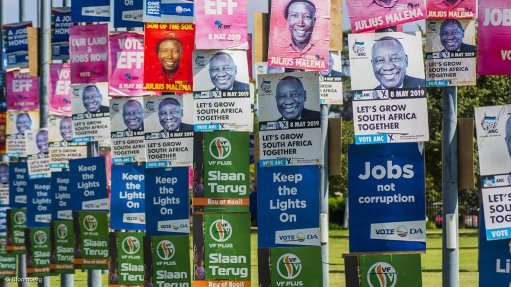Opinion: Virtual Wheeling 101
In this opinion article, Jason van der Poel and Hannah Milner of Webber Wentzel discuss Eskom’s virtual wheeling pilot and how the roll-out of the programme will enable companies with multiple offtake sites to connect to generators using the Eskom or municipal grids.
Electricity wheeling mechanisms play a key role in facilitating the optimal integration of renewable energy resources into the grid. Wheeling across high and medium-voltage lines has been the focus of Eskom's wheeling strategies to date, but the proposed introduction of virtual wheeling, a new product offering by Eskom, opens opportunities for companies with multiple smaller and low-voltage loads scattered across various geographies in South Africa to participate in the market.
WHAT IS WHEELING?
Wheeling is the delivery of energy from a generator of renewable energy to an end-user (the off-taker or buyer) situated in another area. This is achieved using Eskom's existing transmission or distribution networks, or existing municipal distribution networks.
In South Africa, wheeling arrangements have traditionally been concluded between larger generators and buyers of electricity connected at medium and high voltages (higher than 1kV). Under this approach, there is a direct relationship between the generator and the buyer. Eskom charges the generator and the buyer for the use of the Eskom grid and credits the buyer's bill for the electricity delivered to the buyer but not supplied by Eskom at the end of each month.
The traditional wheeling methodology works for larger buyers. However, it needs to be adapted for two primary reasons. The first is that the traditional wheeling mechanism is designed to service large consumers of electricity, typically one generator selling to one or two buyers. It does not adequately cater for several low to medium voltage consumers. The second reason is that traditional wheeling has been inaccessible to buyers in most municipal distribution networks. Many municipalities lack the necessary wheeling protocols, including use-of-system tariffs, and do not have the infrastructure to accommodate the necessary billing, metering and data processing systems for wheeling transactions using both Eskom and municipal distribution networks to a buyer supplied by the municipality.
In an attempt to overcome these complexities, in July 2023, Eskom announced a new product, the virtual wheeling platform.
HOW WILL VIRTUAL WHEELING WORK?
The virtual wheeling platform connects buyers that have multiple offtake sites to generators via Eskom or municipal grids. This requires an automated process to collect, aggregate, and report time-of-use data for energy generated and consumed by generators and buyers in order to provide a refund to the buyer for wheeled energy delivered to all of its offtake sites on a consolidated basis.
We have identified three key differences between the traditional wheeling mechanism currently being implemented and the virtual wheeling platform introduced by Eskom:
Instead of processing a credit to an account for each offtake site of a buyer for the electricity sold by a private generator, a buyer must settle its Eskom bill in full and at the end of the month a single refund will be processed to one account of the buyer. A consolidation exercise will be undertaken through Eskom's virtual wheeling platform to measure the energy produced by generators and used by buyers. The platform will enable Eskom to aggregate time-of-use energy generation and consumption data across multiple distributed offtaker sites for the purpose of calculating the monthly refund payable to the buyer. In summary, it will facilitate access to wheeling for low to medium energy buyers and offtakers with a distributed consumption base.
The virtual wheeling platform will be able to aggregate energy generation and consumption data into Eskom time-of-use periods (standard, peak, and off-peak) in hourly intervals. Traditionally, energy generation and consumption data has been aggregated at monthly intervals. Eskom has stated that it is developing an API interface to generate hourly data which will be used for calculating refunds.
According to Eskom, to participate in virtual wheeling, buyers will be required to conclude a Virtual Wheeling Agreement and a back-to-back Virtual Wheeling Platform Agreement with a virtual wheeling platform vendor, who is appointed by the buyer and certified by Eskom to inter-operate with Eskom's systems. This differs from traditional wheeling, which requires an amendment to the buyer's Electricity Supply Agreement and the generator's Connection and Use of System Agreement to identify the generator and the buyer, and to provide for the tariff offset. Under virtual wheeling, these documents remain in place and are referenced in the Virtual Wheeling Agreements.
WHAT REQUIREMENTS WILL THE BUYER BE REQUIRED TO SATISFY?
In addition to the Virtual Wheeling Agreements mentioned above, buyers will be required to establish meter access for Eskom and the virtual wheeling platform with generators under their existing power purchase agreements. Meters will need to be linked to the virtual wheeling platform via Eskom's meter vendor cloud. The buyer will be expected to run pre-production verification testing and produce a report for Eskom's approval. The report will be required to show that: (i) each consumption site has a live meter reading over a defined test period; and (ii) the existing business rules are aligned with the contracted business rules agreed with Eskom. Once approved, a production account will be activated and the virtual wheeling platform will automatically begin producing scheduled monthly reconciliation reports. These reports will decide the refund to be paid to the buyer at the end of the month.
WHEN WILL VIRTUAL WHEELING BE ROLLED OUT BY ESKOM?
In August 2023, Vodacom signed Eskom's first Virtual Wheeling Agreement after a successful pilot phase and rigorous testing. Some of the issues that Eskom is still considering include municipal wheeling structures, the status of buyers and municipalities in debt to Eskom, tariff and use of system charges.
CONCLUSION: WHY THE SHIFT?
The introduction of virtual wheeling will enable buyers with multiple smaller and low to medium voltage offtake sites across various geographies to benefit from wheeling mechanisms. IPPs will have greater opportunities to sell surplus generation which may otherwise go to waste. While Eskom will continue to offer traditional wheeling as a product, the addition of a virtual wheeling option has the potential to accelerate access to alternative energy sources and introduce much-needed additional capacity into the grid.
*Van der Poel is a partner at Webber Wentzel and Milner a candidate attorney.
Comments
Press Office
Announcements
What's On
Subscribe to improve your user experience...
Option 1 (equivalent of R125 a month):
Receive a weekly copy of Creamer Media's Engineering News & Mining Weekly magazine
(print copy for those in South Africa and e-magazine for those outside of South Africa)
Receive daily email newsletters
Access to full search results
Access archive of magazine back copies
Access to Projects in Progress
Access to ONE Research Report of your choice in PDF format
Option 2 (equivalent of R375 a month):
All benefits from Option 1
PLUS
Access to Creamer Media's Research Channel Africa for ALL Research Reports, in PDF format, on various industrial and mining sectors
including Electricity; Water; Energy Transition; Hydrogen; Roads, Rail and Ports; Coal; Gold; Platinum; Battery Metals; etc.
Already a subscriber?
Forgotten your password?
Receive weekly copy of Creamer Media's Engineering News & Mining Weekly magazine (print copy for those in South Africa and e-magazine for those outside of South Africa)
➕
Recieve daily email newsletters
➕
Access to full search results
➕
Access archive of magazine back copies
➕
Access to Projects in Progress
➕
Access to ONE Research Report of your choice in PDF format
RESEARCH CHANNEL AFRICA
R4500 (equivalent of R375 a month)
SUBSCRIBEAll benefits from Option 1
➕
Access to Creamer Media's Research Channel Africa for ALL Research Reports on various industrial and mining sectors, in PDF format, including on:
Electricity
➕
Water
➕
Energy Transition
➕
Hydrogen
➕
Roads, Rail and Ports
➕
Coal
➕
Gold
➕
Platinum
➕
Battery Metals
➕
etc.
Receive all benefits from Option 1 or Option 2 delivered to numerous people at your company
➕
Multiple User names and Passwords for simultaneous log-ins
➕
Intranet integration access to all in your organisation




















